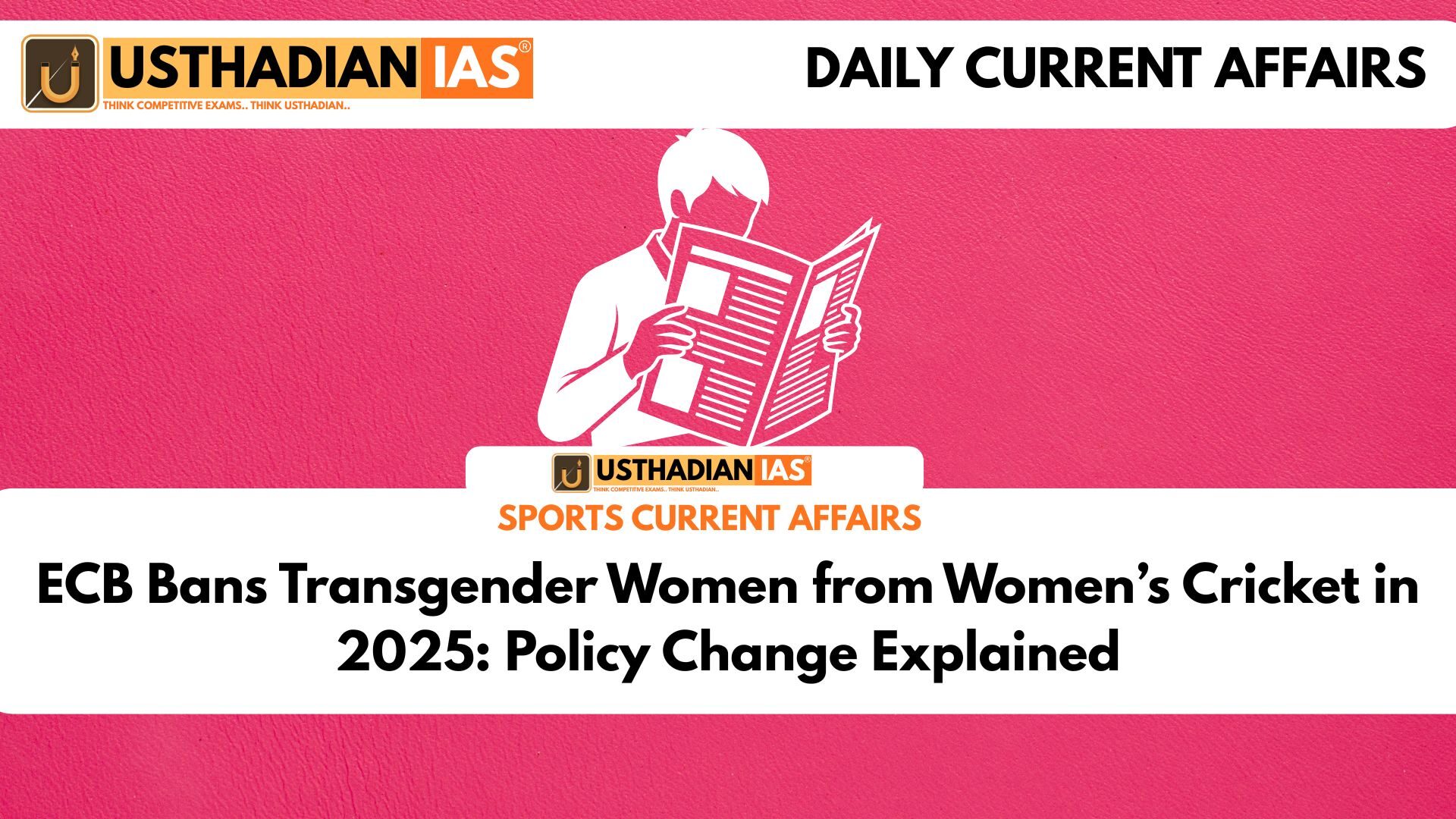What Triggered the Policy Change?
ECB Bans Transgender Women from Women’s Cricket in 2025: Policy Change Explained: In a landmark decision that stirred debate across sporting and human rights communities, the England and Wales Cricket Board (ECB) has banned transgender women from competing in all levels of women’s cricket. This follows a Supreme Court ruling in the United Kingdom (April 2025) that upheld the legal distinction of gender based strictly on biological sex. The ECB’s decision aligns with other UK sports bodies, including Football Association and England Netball, signaling a broader shift toward policies centered on fairness and safety.
The New ECB Guidelines
Under the revised May 2025 ECB policy, only individuals born biologically female can compete in women’s cricket at all levels, from grassroots to elite. The previous 2024 policy had allowed transgender women who had not gone through male puberty to play in the top two tiers. Now, this distinction has been scrapped. Transgender players are still eligible to participate in mixed-gender or open categories, maintaining a space for inclusivity in alternative formats.
Reactions and Sporting Trends
The decision has sparked mixed reactions. Advocacy groups like Sex Matters have supported the ruling, calling it a victory for fairness and clarity in women’s sports. Others, including some transgender athletes and equality organizations, criticize the lack of consultation and argue that blanket bans reduce opportunities for inclusion without addressing individual contexts. Globally, sports like athletics, cycling, swimming, and football have enacted similar exclusions, often citing competitive advantage and physical safety.
The Legal and Sporting Context
This move stems from the April 2025 UK Supreme Court ruling, which stated that legally defined female status must be based on biological sex. The ECB acted swiftly after this, issuing the new eligibility policy effective from May 2, 2025. The International Cricket Council (ICC) had already banned transgender women who had experienced male puberty from international women’s cricket in 2023. The ECB decision brings national policy in line with international norms.
Balancing Inclusion and Fairness
While the ECB affirms its support for diversity through open-format cricket, it emphasizes the need for “fair competition, safety, and trust” in female-only categories. The policy acknowledges the physical differences that may impact performance, particularly in contact or high-speed sports. This mirrors ongoing global debates about how best to uphold women’s sports integrity while respecting gender identity rights.
Static GK Snapshot for Exams
ECB Bans Transgender Women from Women’s Cricket in 2025: Policy Change Explained:
| Topic | Details |
| Why in the News | ECB bans transgender women from women’s cricket |
| Implemented By | England and Wales Cricket Board (ECB) |
| Effective From | May 2, 2025 |
| Legal Basis | UK Supreme Court ruling (April 2025) |
| Previous Policy | Allowed partial inclusion based on puberty stage |
| Current Policy | Full exclusion from all levels |
| Alternatives Offered | Mixed-gender and open category formats |
| Similar Sports Ban | Football, Netball, Swimming, Athletics, Cycling |
| ICC Trans Policy Update | Banned post-puberty transgender women (2023) |
| ECB HQ | Lord’s Cricket Ground, London |
| ECB Founded | 1997 (governs cricket in England and Wales) |








